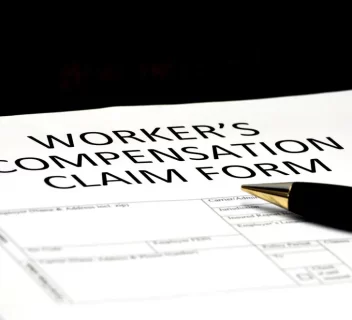Employer Liability Accident Insurance: Protecting Injured Employees Beyond Workers’ Compensation
When an employee suffers a work-related injury or illness, workers’ compensation provides essential medical expenses and lost wages. However, there are situations where these benefits may not fully cover an injured employee’s losses. Employer liability accident insurance steps in to offer additional protection to employees by addressing claims that go beyond workers’ compensation coverage.
Employers’ liability insurance cover extends to claims arising from an employee’s work-related injury, including those that occur while performing job duties or as a result of workplace accidents.
This article explains how employer liability accident insurance supports injured employees, highlighting its differences from workers’ compensation and the types of claims it covers.
Key Takeaways
- Employer liability accident insurance helps protect injured employees by covering claims that exceed workers’ compensation benefits, such as lawsuits related to employer negligence.
- This insurance covers legal costs, settlements, judgments, and additional medical expenses that workers’ compensation may not fully address.
- Employer’s liability is a key component of workers’ comp insurance, providing protection for businesses against employee lawsuits that go beyond standard workers’ compensation claims.
- Understanding the distinctions between employer liability insurance and workers’ compensation is vital for employees seeking full compensation for workplace injuries or illnesses.
How Employer Liability Accident Insurance Supports Injured Employees
Workers’ compensation insurance is designed to provide injured employees with medical expenses, rehabilitation costs, and lost wages without requiring them to prove fault. It ensures timely benefits for workplace injuries or occupational diseases.
However, workers’ compensation has limits and exclusions. When an injured employee believes their losses exceed these benefits—especially if the employer’s negligence contributed to the injury—they may file a lawsuit seeking additional compensation. While statutory benefits provided by most workers’ compensation policies are mandated by law, they may not cover all related injuries or illnesses that could result in legal claims. In these cases, an insurance company can help employers secure additional protection through employer liability accident insurance, which covers these types of claims and provides injured employees with access to further financial recovery.
In some states, known as monopolistic states, employer liability insurance is purchased separately from workers’ compensation, ensuring employees in those jurisdictions still have protection beyond standard benefits.
Coverage Areas Benefiting Injured Employees
Employer liability accident insurance covers several areas that directly benefit injured employees, including:
Employer’s liability insurance coverage, sometimes referred to as EL insurance, is a crucial part of protecting both employees and employers from legal and financial risks associated with workplace injuries. Employer’s liability insurance helps cover legal costs, settlements, and other expenses if an employee sues the employer for a work-related injury or illness not covered by standard workers’ compensation insurance.
Legal Defense and Settlements
If an injured employee files a lawsuit alleging employer negligence or other claims beyond workers’ compensation, employer liability insurance helps cover the legal defense costs and any settlements or judgments awarded. When an employee sues their employer for an employee injury, employer liability insurance provides coverage for these situations and helps manage employee claims that extend beyond what standard workers’ compensation covers. This ensures employees have a pathway to recover damages that workers’ comp does not provide.
Additional Medical Expenses
Injured employees may face medical costs exceeding workers’ compensation limits. Employer liability insurance can cover these extra expenses, helping employees access the care they need without financial hardship. In these cases, employer liability insurance can help cover medical benefits that go beyond what is provided by state-mandated workers’ compensation policies.
Compensation for Unique Claims
Certain claims, such as dual capacity lawsuits or third-party overaction lawsuits, involve complex liability scenarios where employees seek compensation beyond workers’ compensation. Consortium lawsuits, which involve claims for loss of companionship or support due to workplace injuries, are another example of unique claims covered by employer liability insurance. Employer liability insurance ensures employees can pursue these claims and receive appropriate compensation.
Common Claims Covered for Injured Employees
Injured employees may file claims under employer liability accident insurance for:
- Negligence claims when employers fail to maintain a safe workplace
- Third-party overaction lawsuits involving multiple parties
- Dual capacity lawsuits where employers have multiple roles
- Consequential bodily injury claims affecting family members
In addition, claims can also be filed by a family member or non-employee who is affected by an employee’s injury, such as in cases of loss of consortium or consequential damages.
Understanding these claims helps employees recognize their rights and the protections available beyond workers’ compensation.
Consortium Claims and Insurance
Consortium claims arise when family members—such as spouses, children, or other dependents—of an employee who has suffered a work-related injury or illness seek compensation for the loss of companionship, emotional support, or other damages resulting from the employee’s condition. These claims recognize that a serious injury or illness can impact not only the injured worker but also their loved ones, who may experience significant changes in their daily lives and relationships.
Employers’ liability insurance plays a crucial role in protecting businesses from the financial risks associated with consortium claims. This type of liability insurance is typically purchased as part of a workers’ compensation policy, and it helps cover the legal costs, settlements, and damages that may arise when family members file such claims. By providing this additional layer of financial protection, employers’ liability insurance ensures that businesses are not left vulnerable to substantial financial losses stemming from related injury or illness lawsuits.
Consortium claims can be complex and may involve significant legal expenses, especially if the case goes to court. For business owners, facing these types of employee lawsuits can threaten the business’s financial health and disrupt normal business operations. That’s why it’s essential for employers—especially those with one or more employees—to carry workers’ compensation insurance that includes robust employers’ liability coverage.
Beyond consortium claims, employers’ liability insurance also offers protection against a range of other employee lawsuits, including wrongful termination, discrimination, and harassment claims. This comprehensive insurance coverage is a vital component of any business insurance strategy, helping to safeguard against a variety of legal risks that can arise in the workplace.
When considering employers’ liability insurance, business owners should compare coverage options and rates from different insurance companies. The cost of coverage can vary based on factors such as the size of the business, the number of employees, and the nature of the business operations. Consulting with an experienced insurance broker or agent can help ensure that the chosen policy provides adequate protection for all potential liabilities, including consortium claims.
In summary, understanding consortium claims and securing the right employers’ liability insurance coverage is essential for protecting both the business and its employees’ families. With the proper insurance in place, businesses can mitigate the financial impact of employee lawsuits and continue to operate with confidence, even in the face of unexpected workplace injuries or illnesses.
How Employer Liability Accident Insurance Differs from Workers’ Compensation
While workers’ compensation guarantees medical and wage benefits without fault, employer liability accident insurance addresses situations where injured employees seek additional damages due to employer negligence or other legal grounds.
Workers’ compensation policies outline the benefits provided for a job-related injury, such as medical expenses, rehabilitation costs, and a portion of lost wages. However, employer liability accident insurance addresses additional legal claims and damages that may arise beyond those statutory benefits.
Employer liability insurance covers legal claims, punitive damages, and other costs related to lawsuits filed by injured employees.
Together, these coverages provide a comprehensive safety net for employees injured on the job, ensuring they receive both immediate benefits and the opportunity for further compensation when warranted.
Exclusions Employees Should Know
Employer liability accident insurance generally excludes claims related to an employee’s criminal acts, intentional self-harm, or injuries occurring outside the scope of employment. Claims involving illegal profit or criminal activities are also excluded from employer liability accident insurance coverage. Understanding these exclusions helps employees set realistic expectations about their coverage.
Why Injured Employees Should Understand Employer Liability Accident Insurance
For injured employees, knowing the difference between workers’ compensation and employer liability accident insurance can be crucial in pursuing full compensation. Employer liability insurance offers an avenue for additional financial recovery when workers’ compensation benefits are insufficient.
Being informed empowers employees to advocate for their rights and seek the legal support they need when facing workplace injury claims.
Summary
Employer liability accident insurance complements workers’ compensation by protecting injured employees against financial losses that exceed standard benefits. It covers legal costs, settlements, and extra medical expenses arising from employer negligence or complex liability claims.
By understanding these protections, injured employees can better navigate their options for compensation and ensure they receive the care and financial support they deserve after a workplace injury or illness.
Contact 1-800-THE-LAW2 today for a free consultation with an employer liability accident insurance attorney in our network.
Frequently Asked Questions
It provides coverage for legal claims, additional medical expenses, and settlements that go beyond workers’ compensation benefits, helping injured employees recover more fully.
Claims include negligence, third-party overaction, dual capacity lawsuits, and consequential bodily injury claims affecting family members.
Workers’ compensation provides no-fault medical and wage benefits, while employer liability insurance covers legal liabilities and damages arising from employer negligence or lawsuits.
Yes, claims related to criminal acts by the employee, intentional harm, or injuries outside the scope of employment are typically excluded.
Employees should consult legal professionals knowledgeable in workplace injury claims to understand their rights and navigate the claims process effectively.




